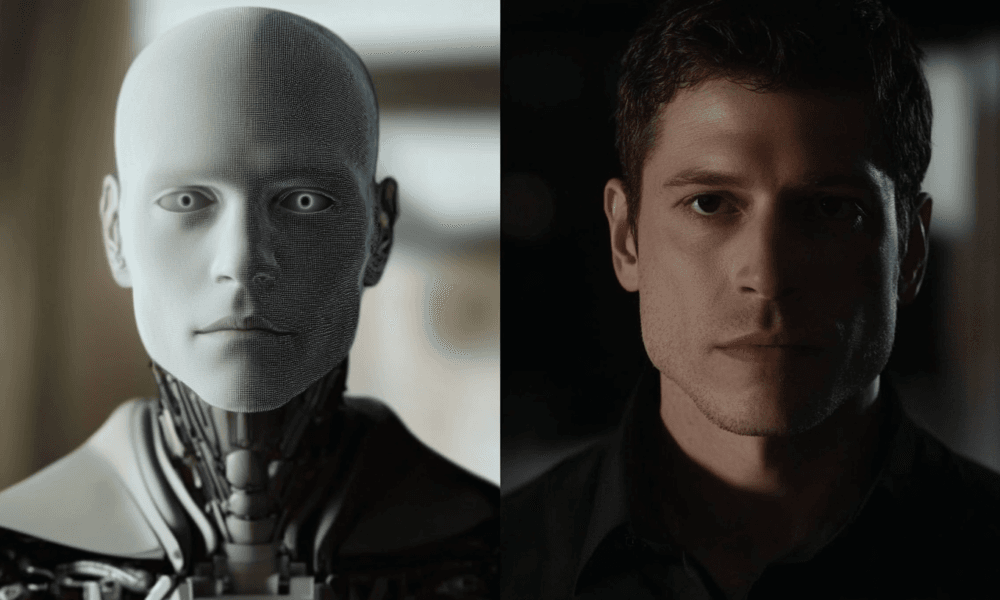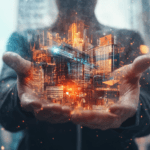The Impact of AI on Acting: Nicolas Cage Warns Against Digital Replication
Artificial intelligence (AI) is rapidly transforming multiple industries, including entertainment. The film industry, known for its adoption of cutting-edge technology, is at the forefront of these changes, using AI for special effects, scriptwriting, and even digital performances. However, as AI advances, concerns are being raised about its impact on acting, particularly the use of AI to digitally replicate actors’ performances. Actor Nicolas Cage recently voiced his concerns about the ethical and creative implications of AI in the world of acting, highlighting potential risks that digital replication poses for the industry as a whole. This article delves into Nicolas Cage’s warnings, the technology behind AI-generated performances, and the broader implications for the film industry.
AI and the Rise of Digital Replication
The use of AI to replicate actors’ performances is not a new concept, but it has recently gained significant traction. Deepfake technology, which uses AI to manipulate videos by replacing faces or altering facial expressions, is one of the most prominent examples of AI-driven replication. Initially developed for novelty and entertainment purposes, this technology has advanced to the point where it can seamlessly recreate an actor’s appearance, voice, and performance.
AI-generated content is also used to create digital doubles, which can be particularly useful in scenarios where actors are unavailable for filming, such as during reshoots or dangerous scenes. In recent years, studios have utilized AI to digitally recreate deceased actors, allowing them to “perform” in movies long after their passing. For instance, Peter Cushing was digitally resurrected in “Rogue One: A Star Wars Story,” and Carrie Fisher’s younger version was brought back in “Star Wars: The Rise of Skywalker.”
Nicolas Cage’s Concerns About AI in Acting
Nicolas Cage, an acclaimed actor known for his dynamic and expressive performances, has been vocal about his concerns regarding the use of AI in replicating actors. Cage’s main argument is centered on the sanctity of an actor’s creative performance. He believes that AI replication poses a threat to the authenticity of an actor’s work, as it takes away the individuality and spontaneity that an actor brings to the role.
1. Ethical Implications of AI Replication
Cage has emphasized the ethical issues associated with digitally replicating an actor without their explicit consent. He pointed out that AI-generated replicas can be used in ways that are out of the actor’s control, potentially leading to unauthorized performances or alterations that the actor would not endorse. In an industry that is built on creativity and individuality, Cage warns that the increasing use of AI could lead to the erosion of the artistic contribution of actors.
2. Loss of Human Element in Acting
Another major concern voiced by Cage is the potential loss of the human element in acting. Acting is an art form that thrives on emotional nuance, improvisation, and human connection—all of which are difficult for AI to replicate authentically. Cage believes that AI can only capture superficial elements of an actor’s performance, but not the depth of emotions or the unique interpretation that a human actor brings to a role. According to Cage, relying too heavily on AI in acting could ultimately diminish the emotional impact of films and lead to a homogenization of performances.
3. Impact on Actor Rights and Compensation
Cage has also raised concerns about how AI replication could impact actor rights and compensation. If studios can use AI to digitally recreate an actor, it could lead to actors losing control over their image and likeness. This raises questions about how actors should be compensated for AI-generated performances. Cage warns that without proper regulations, studios may use AI to exploit actors’ likenesses without fair compensation, leading to a significant devaluation of the work of professional actors.
Broader Implications for the Film Industry
Nicolas Cage’s warnings reflect broader concerns within the entertainment industry about the use of AI in acting. The implications of AI technology extend beyond individual actors and affect the entire creative ecosystem of filmmaking.
1. Deepfake Technology and Ethical Concerns
The rise of deepfake technology has raised serious ethical concerns regarding consent, manipulation, and misinformation. Deepfakes can be used to create fake videos of public figures, which can have serious consequences for privacy and trust. In the context of acting, the unauthorized use of an actor’s likeness not only undermines their artistic integrity but can also lead to a loss of public trust in the authenticity of media.
To address these concerns, industry groups and regulators are calling for stricter rules governing the use of deepfake technology. In some jurisdictions, such as California, laws have been enacted to protect individuals from having their likeness used without consent. However, the rapidly evolving nature of AI technology presents ongoing challenges in terms of regulation and enforcement.
2. AI and the Future of Performance Capture
AI has the potential to transform performance capture technology, which involves recording an actor’s movements and facial expressions to create a digital character. While performance capture has been used to great success in films like “Avatar” and “The Lord of the Rings,” AI could take this technology even further, allowing for hyper-realistic digital characters that closely resemble the original actors.
However, this raises questions about the role of actors in the future of filmmaking. If AI can replicate facial expressions, body movements, and even vocal performances, will there still be a need for actors to physically perform on set? Cage’s concerns highlight the importance of maintaining the human connection in acting, which is central to creating a believable and emotionally engaging performance.
3. Impact on Creative Collaboration
Acting is not just about an individual performance; it is part of a larger collaborative effort that involves directors, writers, and other actors. AI-generated performances could disrupt this creative collaboration by removing the actor’s agency and input from the process. Cage argues that the spontaneity of an actor’s performance can inspire changes in direction, dialogue, or the emotional tone of a scene, and that this creative collaboration could be lost if AI takes over.
4. Legal and Regulatory Challenges
The use of AI in acting also presents legal and regulatory challenges, particularly regarding intellectual property rights. Who owns the rights to an AI-generated performance—the actor, the studio, or the AI developer? These questions are complex and have yet to be fully addressed by the legal system. Nicolas Cage’s concerns highlight the need for updated regulations that protect actors’ rights in an age of AI-driven content creation.
Preserving the Art of Acting in an AI-Driven World
As AI technology continues to advance, the entertainment industry faces important decisions about how to balance the benefits of innovation with the preservation of artistic integrity. Nicolas Cage’s warnings serve as a call to action for the industry to protect the human element of acting and ensure that actors maintain control over their creative work.
1. Ethical Guidelines and Regulations
To prevent misuse of AI technology, it is crucial to establish ethical guidelines and regulations that govern the use of AI in acting. These regulations should ensure that actors give informed consent for any digital replication of their likeness and are fairly compensated for AI-generated performances.
2. Emphasizing Human Creativity
While AI can be a powerful tool for enhancing visual effects and streamlining production, it should not replace human creativity. The emotional depth, nuance, and improvisation that actors bring to their roles are irreplaceable aspects of storytelling that must be preserved. The industry should focus on using AI as a tool to support actors rather than replace them.
Conclusion
The impact of AI on acting is a complex issue that raises ethical, creative, and legal questions. Nicolas Cage’s concerns about digital replication reflect a broader apprehension within the industry regarding the loss of artistic control, the devaluation of human performance, and the potential misuse of technology. As the entertainment industry navigates the possibilities and challenges of AI, it is crucial to strike a balance between innovation and preserving the essence of acting as a human-driven art form. Only by respecting the creative contributions of actors and establishing clear ethical guidelines can the industry ensure that AI serves as a tool for storytelling rather than a threat to its authenticity.




No Comment! Be the first one.